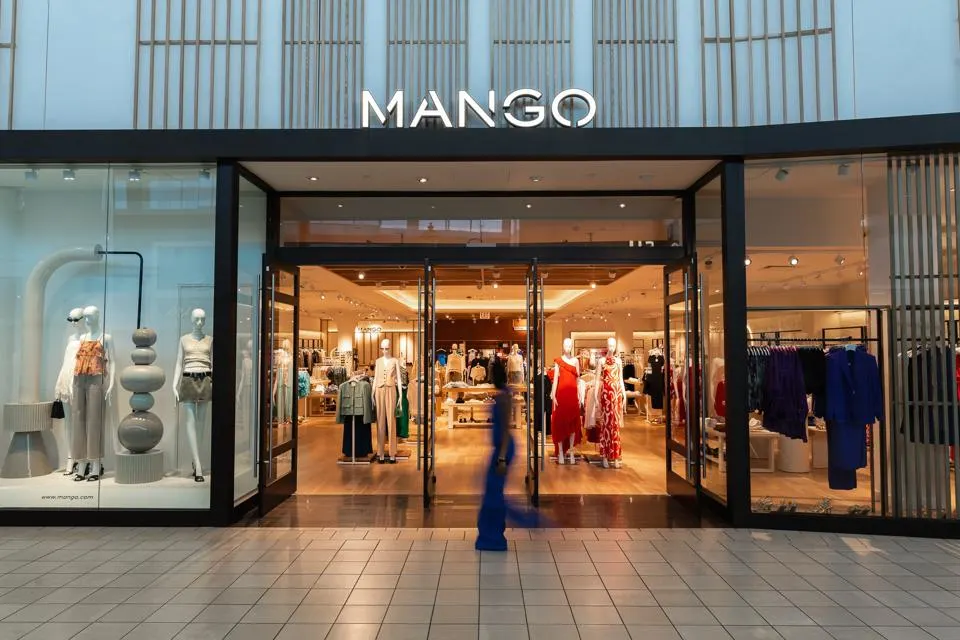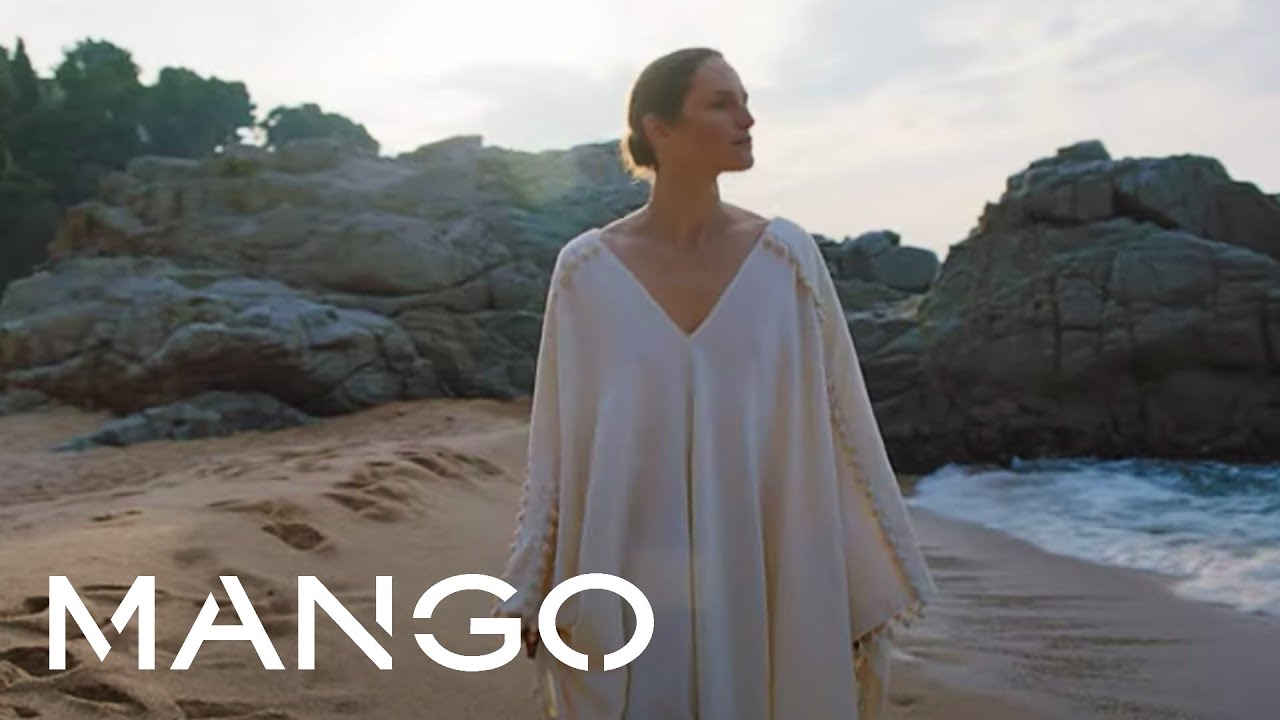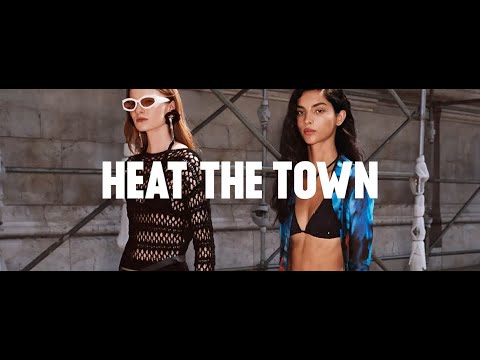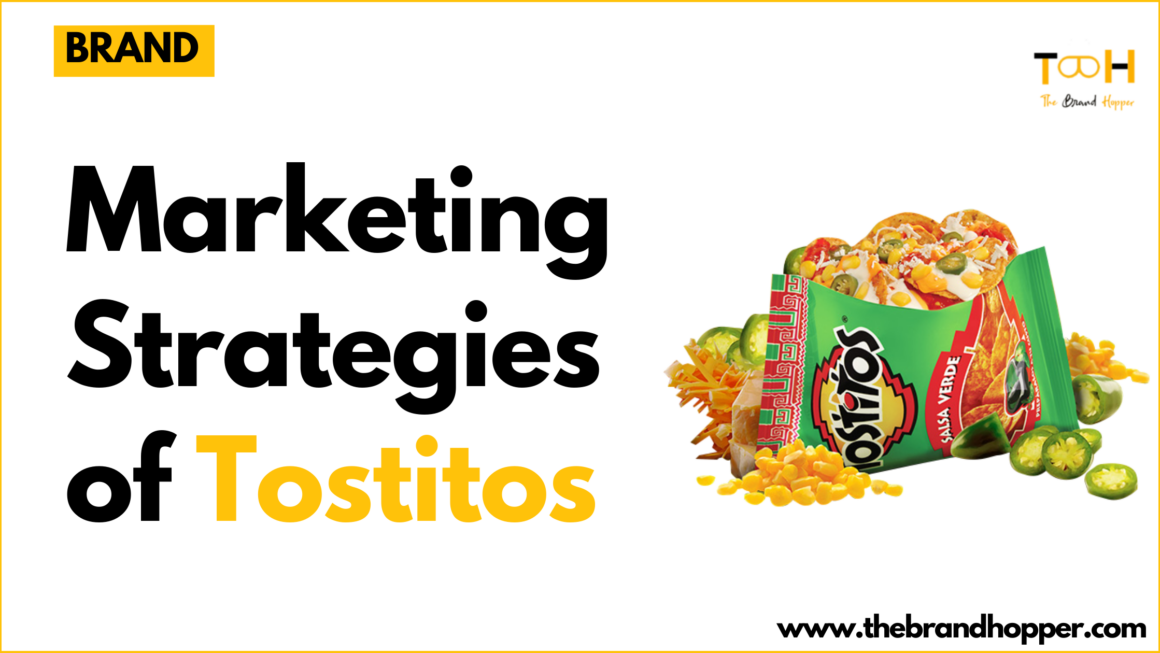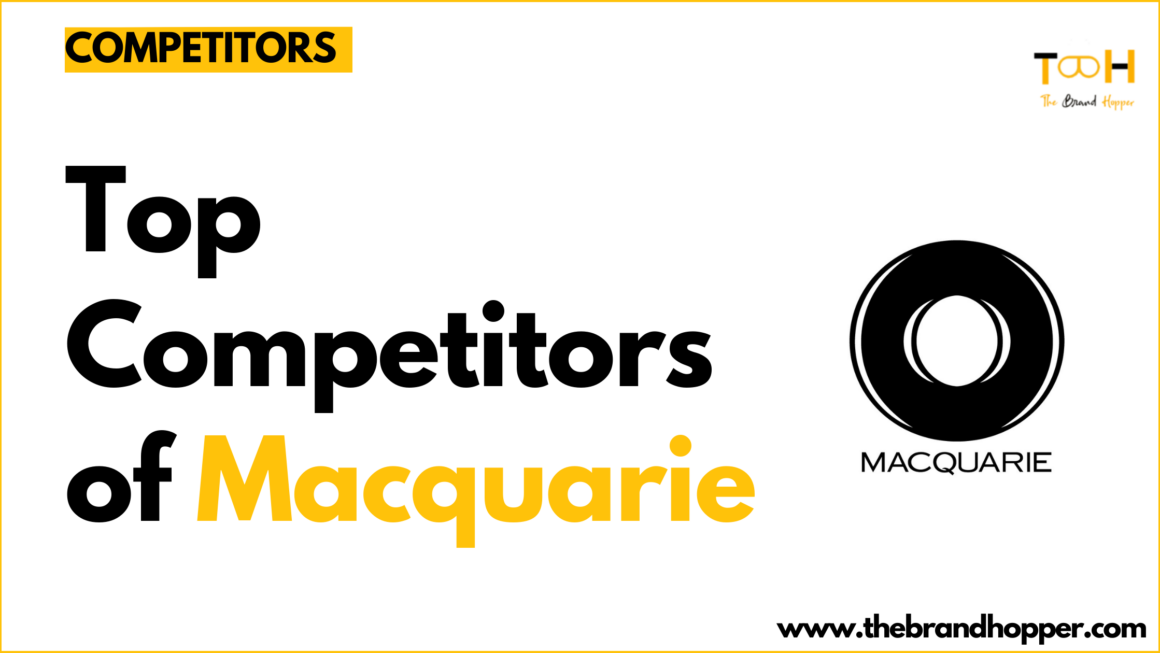Mango, officially known as Punto Fa, S.L., is a Spanish fashion brand that has become one of the most recognized names in the global fashion industry. Founded in 1984 by Isak Andic and Nahman Andic in Barcelona, Mango has grown from a single store to a multinational company with a presence in over 100 countries. The brand is known for its commitment to offering fashion-forward, high-quality clothing and accessories at affordable prices, catering primarily to women but also providing lines for men and children.
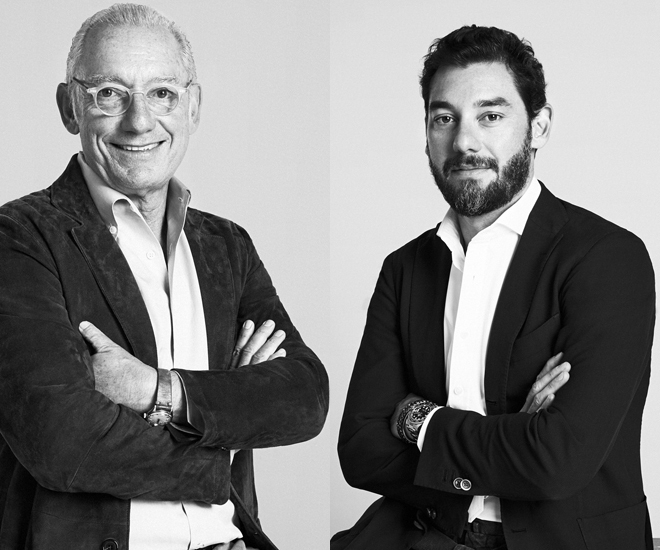
Origins and Growth
Mango’s journey began with a small boutique in the heart of Barcelona, driven by the vision of its founders to create a fashion brand that combined the latest trends with timeless styles. The Andic brothers identified a gap in the market for well-designed, accessible fashion, and they quickly expanded their business model to include a broader range of clothing options. By the early 1990s, Mango had already established itself as a key player in the Spanish fashion market, with several stores across the country.
The 1990s were a period of rapid expansion for Mango. The brand started to extend its reach beyond Spain, opening stores in Portugal, France, the UK, and eventually, across Europe. This international expansion was a critical step in Mango’s growth strategy, helping to establish the brand as a global fashion powerhouse. Mango’s success can be attributed to its unique business model, which combines the agility of fast fashion with the sophistication of higher-end brands. Mango designs, manufactures, and distributes its products, allowing for a high degree of control over the quality and style of its offerings.
Brand Philosophy and Product Range
Mango’s brand philosophy centers around the concept of “Mediterranean style,” which is reflected in its collections that often feature clean lines, earthy tones, and a blend of classic and contemporary designs. The brand is known for its versatility, offering a wide range of products that cater to various occasions and styles. Whether it’s casual wear, office attire, or evening wear, Mango aims to provide its customers with fashionable options that are both stylish and functional.
One of Mango’s key strengths is its ability to stay ahead of fashion trends. The brand has a dedicated design team that travels around the world to observe emerging trends, which are then incorporated into their collections. This proactive approach to trend forecasting allows Mango to offer fresh, up-to-date styles that resonate with a global audience. Additionally, Mango has a strong focus on sustainability and ethical practices. In recent years, the brand has launched various initiatives aimed at reducing its environmental impact, such as using sustainable materials, improving energy efficiency in stores, and promoting recycling programs.
Market Position and Target Audience
Mango positions itself as a brand that appeals to the modern, sophisticated consumer. Its target audience is primarily women aged 18 to 40 who are fashion-conscious and value both style and quality. However, Mango also caters to men and children through its Mango Man and Mango Kids lines, respectively. The brand’s pricing strategy is competitive, offering high-quality products at prices that are accessible to a broad range of consumers. This has enabled Mango to maintain a strong market presence even in the highly competitive fashion industry.
Mango’s ability to adapt to different markets and consumer preferences has been a significant factor in its global success. The brand’s international stores often feature collections that are tailored to the local market, ensuring that Mango’s products are relevant and appealing to customers in different regions. This localization strategy, combined with a strong online presence, has allowed Mango to reach a diverse and global customer base.
Digital Transformation and E-Commerce
In the digital age, Mango has been proactive in embracing e-commerce and digital marketing. The brand launched its online store in 2000, making it one of the first fashion brands to offer its products online. This early adoption of e-commerce has been a key driver of Mango’s growth, particularly in markets where physical stores are less prevalent. Mango’s online store offers a seamless shopping experience, with features such as personalized recommendations, easy navigation, and a wide range of payment options.
Mango’s digital transformation extends beyond e-commerce. The brand has invested heavily in digital marketing, using social media platforms, influencer partnerships, and online advertising to reach and engage with its target audience. Mango’s presence on platforms like Instagram, Facebook, and Pinterest has allowed it to build a strong online community and increase brand visibility. The brand’s commitment to digital innovation is also evident in its use of data analytics and AI to optimize its supply chain, improve customer service, and enhance the overall shopping experience.
Sustainability and Future Outlook
Sustainability is a growing focus for Mango, reflecting the broader industry trend towards more responsible fashion practices. The brand has committed to reducing its carbon footprint and has set ambitious goals for the coming years, such as achieving 100% sustainable cotton by 2025 and reducing water consumption by 25%. Mango’s sustainability efforts also include initiatives to improve the working conditions in its supply chain and promote fair labor practices.
Looking ahead, Mango aims to continue expanding its global footprint while staying true to its core values of quality, style, and sustainability. The brand plans to open more stores in key markets, particularly in Asia and the Middle East, where there is significant growth potential. Additionally, Mango will likely continue to invest in digital innovation, enhancing its online platform and exploring new ways to engage with customers through technology.
In summary, Mango’s success can be attributed to its commitment to offering fashionable, high-quality products at accessible prices, its ability to stay ahead of trends, and its proactive approach to digital transformation and sustainability. As the brand continues to evolve, it remains a key player in the global fashion industry, known for its distinctive Mediterranean style and its dedication to meeting the needs of the modern consumer.
Marketing Strategies of Mango
Mango’s marketing strategies have played a crucial role in establishing and maintaining its position as a leading global fashion brand. Over the years, Mango has leveraged a mix of traditional and digital marketing techniques, strategic collaborations, and a strong brand philosophy to reach a broad and diverse audience. Here’s a detailed exploration of Mango’s key marketing strategies:
1. Brand Positioning and Identity
Mango’s brand positioning and identity are central to its success in the global fashion industry, distinguished by a blend of sophistication, accessibility, and a deep connection to Mediterranean style. Mango positions itself as a fashion brand that combines elegance with affordability, making it a go-to choice for consumers who seek high-quality fashion without the luxury price tag. The brand’s identity is rooted in offering timeless, versatile pieces that appeal to a broad audience, yet with a distinct Mediterranean flair that sets it apart from competitors. This identity is carefully maintained across all marketing channels, ensuring that whether a customer shops online or in-store, they encounter the same seamless, stylish, and cohesive brand experience.
A key aspect of Mango’s brand positioning is its commitment to inclusivity and sustainability, which have become increasingly important to modern consumers. Mango’s “Committed” line, which features clothing made from sustainable materials, is a testament to the brand’s dedication to environmental responsibility. This line not only reflects Mango’s ethical values but also strengthens its appeal to a growing segment of eco-conscious shoppers. Furthermore, Mango’s marketing campaigns often feature models of diverse body types and ethnicities, reinforcing the brand’s message that fashion is for everyone. The Spring 2023 campaign, for instance, highlighted the brand’s inclusive approach by showcasing a variety of styles suitable for different body shapes and lifestyles, all while maintaining the brand’s signature Mediterranean aesthetic.
Mango’s strategic use of digital marketing and social media has been instrumental in enhancing its brand identity and reaching a wider audience. The brand has effectively leveraged platforms like Instagram and TikTok to engage with consumers, particularly through influencer collaborations that resonate with younger audiences. For example, influencers like Julia Hobbs and Monica Ainley de la Villardiere have been pivotal in showcasing Mango’s products in real-life settings, offering styling tips and demonstrating the versatility of the brand’s collections. These collaborations not only drive sales but also reinforce Mango’s identity as a brand that understands and anticipates the needs of its consumers. Additionally, Mango’s focus on creating visually appealing, minimalist content on social media aligns with its brand identity, helping to maintain a consistent and recognizable image across all touchpoint
2. Strategic International Expansion
Mango’s strategic international expansion is a cornerstone of its growth, reflecting the brand’s ambition to solidify its presence in key global markets. This strategy is encapsulated in Mango’s “4E Strategic Plan,” which aims to open more than 500 stores worldwide by 2026, driving the brand’s revenue to over €4 billion. In the first half of 2024 alone, Mango reported a record revenue of €1.543 billion, underscoring the effectiveness of its expansion efforts. Notably, the United States has become a focal point for Mango’s growth, with the brand planning to open 30 new stores by 2026. These new outlets are designed under a Mediterranean-inspired retail concept, featuring warm, neutral palettes and modern amenities such as RFID inventory tracking and enhanced customer service features, like cell phone chargers in changing rooms. This localized approach, where Mango treats each U.S. state as a distinct market, has allowed the brand to tailor its offerings to specific demographics, thereby boosting its appeal in a highly competitive market.
Asia, particularly India, is another critical market for Mango’s international expansion. India has seen a rapid increase in Mango’s presence, with the brand tripling its store count to 110 by the end of 2023. Mango’s partnership with Myntra, a leading Indian e-commerce platform, has been instrumental in this growth, allowing the brand to tap into one of the world’s fastest-growing consumer markets. Mango’s focus on India is part of a broader strategy to secure a significant presence in the region, as the country is projected to become the third-largest consumer market globally. These efforts are not just limited to physical stores; Mango has also bolstered its online sales, which saw substantial growth, contributing to the brand’s overall success in the region. This expansion strategy, combining both brick-and-mortar stores and a strong online presence, exemplifies Mango’s commitment to becoming a dominant player in global fashion.
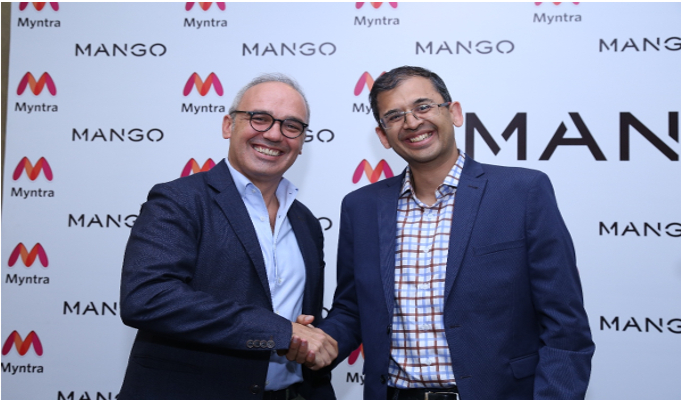
3. Emphasis on Digital Marketing and E-Commerce
Mango has made digital marketing and e-commerce a pivotal component of its overall marketing strategy, recognizing the shift in consumer behavior towards online shopping and digital engagement. Since launching its online store in 2000, Mango has consistently expanded its digital footprint, with e-commerce now accounting for a significant portion of its revenue. In the first half of 2024, for example, approximately 33% of Mango’s total revenue came from online sales, highlighting the critical role that e-commerce plays in the brand’s financial performance. Mango has invested heavily in its online platforms, ensuring a seamless shopping experience across all digital touchpoints. The brand’s website and mobile app are designed to be user-friendly, offering personalized recommendations, easy navigation, and a wide array of payment options, catering to the preferences of its global customer base.
Mango’s digital marketing strategy is characterized by its robust use of social media platforms to engage with customers and promote its products. The brand has a strong presence on platforms such as Instagram, TikTok, and Pinterest, where it leverages influencer collaborations and high-quality content to reach a broader audience. For instance, Mango’s influencer partnerships on TikTok involve creators showcasing their outfits in “Get Ready With Me” videos, which not only highlight the versatility of Mango’s products but also drive traffic to its online store. Additionally, Mango’s Instagram strategy includes the use of carousel posts to showcase different ways to style their clothing, which has proven effective in driving engagement and conversions. The brand’s social media content is carefully curated to maintain a consistent, minimalist aesthetic that aligns with its overall brand identity, thereby reinforcing its positioning as a sophisticated, yet accessible fashion brand.
The brand’s focus on e-commerce and digital marketing has also led to significant growth in its online customer base, particularly through strategic initiatives like the “Mango Likes You” loyalty program. This program, launched in the U.S. in 2023, offers members exclusive benefits and discounts, encouraging repeat purchases and fostering brand loyalty. Mango’s digital strategy also includes the use of data analytics to enhance customer personalization and optimize marketing efforts. For example, the brand uses AI-driven tools to analyze shopping behaviors and tailor product recommendations, which not only improves the shopping experience but also increases the likelihood of conversions. Additionally, Mango’s commitment to integrating its physical and online channels through an omni-channel approach ensures that customers have a consistent and cohesive experience, whether they are shopping online or in-store. This integration has been crucial in maintaining Mango’s competitiveness in the fast-paced digital retail environment.
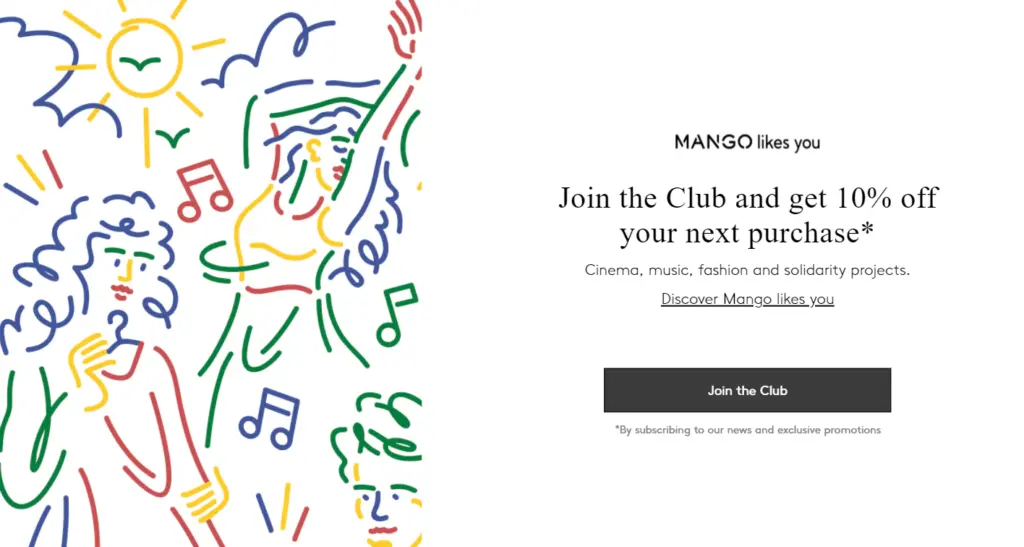
4. Omni-Channel Strategy
Mango has effectively leveraged an omni-channel strategy to create a seamless and personalized shopping experience for its customers across multiple touchpoints. This strategy allows Mango to integrate its online and offline channels, ensuring a consistent brand experience whether customers are shopping in-store, on their mobile devices, or through the website. One notable example is Mango’s “Click & Collect” service, which enables customers to purchase items online and pick them up in-store. This service not only enhances convenience but also drives additional in-store traffic, encouraging more purchases. Additionally, Mango has developed a robust mobile app that connects to its physical stores, offering features like real-time inventory checks and personalized recommendations based on user behavior. This integrated approach ensures that customer interactions are smooth and consistent, no matter where they engage with the brand.
In 2023, Mango also focused on expanding its digital footprint by embracing social commerce, allowing customers to shop directly through social media platforms like Instagram and Facebook. This move was part of a broader strategy to meet customers where they are and offer a more engaging and interactive shopping experience. The results of these efforts have been impressive, with Mango reporting a significant increase in online sales, which now account for a substantial portion of its total revenue. This omni-channel strategy has not only strengthened Mango’s customer loyalty but also positioned the brand as a leader in the fashion retail space, capable of adapting to the rapidly changing retail landscape.
5. Seasonal Campaigns and Trend Adaptation
Mango has effectively utilized seasonal campaigns and trend adaptation to maintain its relevance and appeal in the fast-paced fashion industry. One of their standout campaigns in 2023 was the “Heat the Town” Summer campaign, which perfectly captured the essence of the season by infusing Mediterranean vibes into the collection. Shot in Buenos Aires, this campaign featured vibrant colors and tropical prints, aligning with the summer’s relaxed and lively atmosphere. The campaign was more than just about clothing; it was a celebration of summer itself, offering customers a collection that could take them from day to night in effortless style. This strategic alignment of product offerings with the seasonal mood not only drove customer engagement but also positioned Mango as a go-to brand for summer essentials.
In addition to seasonal campaigns, Mango’s success is also attributed to its ability to adapt to emerging trends through advanced trend forecasting methods. By leveraging technologies like AI-driven social media analytics, Mango can predict and respond to fashion trends almost in real-time. This allows the brand to introduce micro-collections that cater to the latest consumer preferences while maintaining a balance with their sustainability goals. For instance, instead of restocking sold-out items, Mango opts to replace them with fresh designs, reducing waste and keeping their collections dynamic and relevant. This strategy, which combines trend responsiveness with sustainability, has played a crucial role in Mango’s recent growth, contributing to a 15% increase in sales in 2023.
6. Sustainability and Corporate Social Responsibility (CSR)
Mango’s commitment to sustainability and corporate social responsibility (CSR) has become a core element of its marketing strategy, reflecting the brand’s dedication to environmental stewardship and ethical practices. The company’s “Sustainable Vision 2030″ strategy aims to transform Mango into a more sustainable and responsible brand. This includes ambitious goals such as ensuring that 100% of the cotton used in its collections is sustainable by 2025 and reducing water consumption by 25%. One of Mango’s significant initiatives under this strategy is the introduction of its “Committed” line, which features products made from environmentally friendly materials like organic cotton, recycled polyester, and Tencel. This line not only appeals to the growing segment of eco-conscious consumers but also aligns Mango with global efforts to reduce the fashion industry’s environmental impact. The brand has also taken steps towards circularity, launching collections that adhere to principles of circular fashion, including the use of recycled and recyclable materials.
Mango’s CSR efforts extend beyond environmental sustainability to include social responsibility, particularly in its supply chain. The brand is a member of several initiatives aimed at improving labor conditions and promoting fair trade, such as the Better Cotton Initiative (BCI) and the Ethical Trading Initiative (ETI). Mango has also committed to increasing transparency in its supply chain by publishing a list of its suppliers and their compliance with ethical standards. Additionally, Mango has launched campaigns that promote awareness about sustainability issues, such as its collaboration with Pyratex on a limited-edition collection made from seaweed, wood cellulose, and cotton, which was released in celebration of World Ocean Day. These efforts have not only bolstered Mango’s reputation as a socially responsible brand but have also helped it to connect with consumers who prioritize ethical consumption. By integrating sustainability and CSR into its core business strategy, Mango is positioning itself as a leader in the movement towards more responsible fashion.
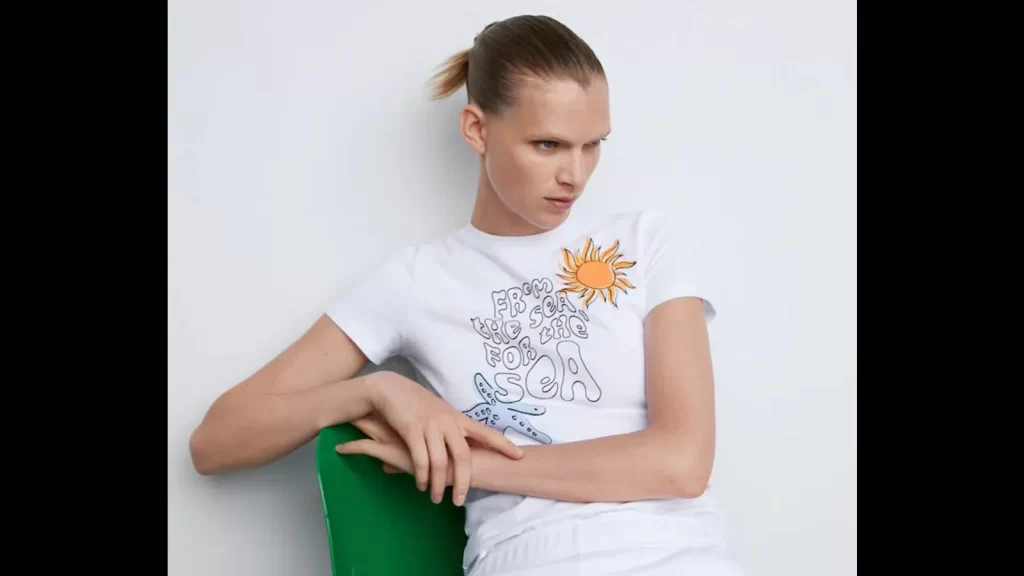
7. Collaboration and Limited Edition Collections
Mango has effectively utilized collaborations and limited-edition collections as a dynamic marketing strategy to generate buzz, attract new customers, and reinforce its brand positioning as a fashion-forward, yet accessible, brand. By partnering with well-known designers, celebrities, and influencers, Mango creates exclusive collections that resonate with a broader audience and often sell out quickly due to their limited availability. For example, Mango’s collaboration with French influencer Jeanne Damas in 2022 resulted in a limited-edition collection that combined Damas’ Parisian chic style with Mango’s Mediterranean aesthetic. This collection was highly successful, generating significant media coverage and social media engagement, as fans of both the brand and the influencer flocked to purchase the unique pieces. These collaborations not only help Mango stay relevant and trendy but also allow the brand to experiment with new designs and concepts without fully committing to them on a larger scale.
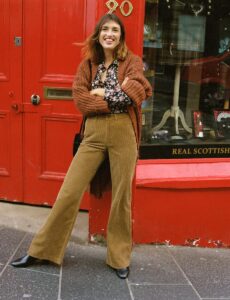
Limited-edition collections also serve as a powerful tool for Mango to tap into niche markets and create a sense of exclusivity. For instance, Mango’s limited-edition capsule collections, such as the “Mango Capsule” collection released in 2023, offer customers a curated selection of high-end, fashion-forward pieces that are only available for a short period. This strategy leverages the fear of missing out (FOMO), encouraging customers to make purchases quickly before the items sell out. Additionally, these collections often incorporate sustainable practices, such as using eco-friendly materials, which align with Mango’s broader commitment to sustainability. The success of these limited-edition collections is evident in their rapid sell-through rates and the heightened brand visibility they generate, both online and in physical stores. By continuously innovating through collaborations and exclusive collections, Mango keeps its brand fresh and exciting, appealing to both its loyal customer base and new audiences.

8. Store Design and Visual Merchandising
Mango’s store design and visual merchandising are central elements of its marketing strategy, aimed at creating an immersive and consistent brand experience that reflects the brand’s Mediterranean roots and sophisticated style. The brand’s recent shift to a Mediterranean-inspired retail concept is evident in its store designs, which feature warm, neutral color palettes, natural materials such as wood and marble, and a layout that mimics the rooms of a house. This design concept is not only aesthetically pleasing but also enhances the shopping experience by making customers feel at home in a relaxed and inviting environment. For example, Mango’s flagship store on Fifth Avenue in New York City exemplifies this approach, with its open, airy spaces, soft lighting, and strategically placed merchandise that guides customers through the store in a way that feels natural and intuitive. This emphasis on creating a welcoming atmosphere is further enhanced by thoughtful details like cell phone charging stations and comfortable seating areas, which encourage customers to spend more time in the store.
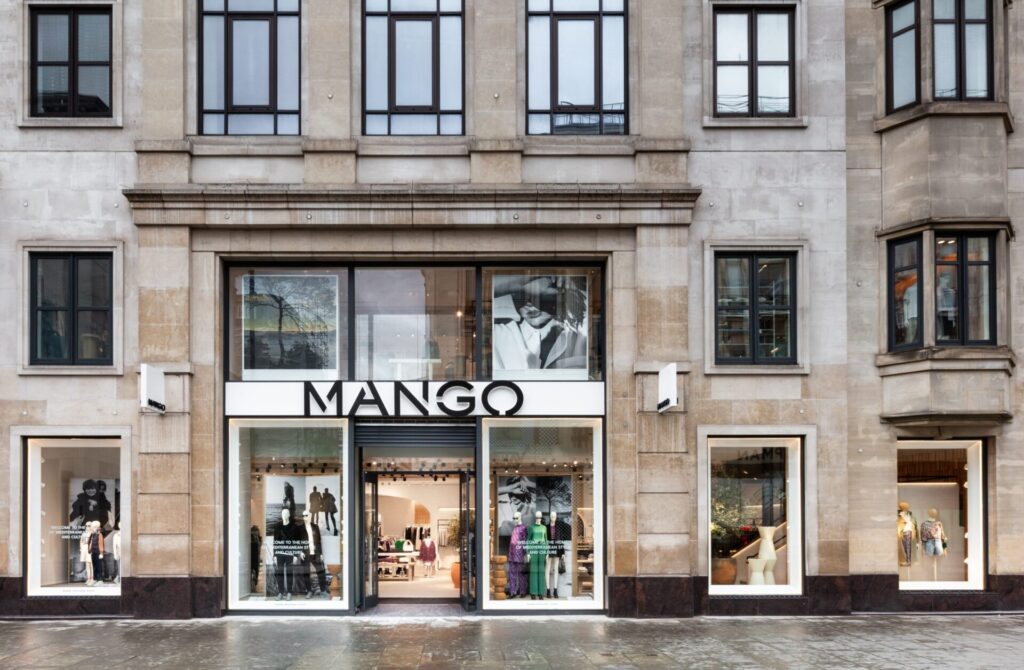
Visual merchandising at Mango is carefully curated to highlight the brand’s key products and seasonal collections, ensuring that every display aligns with the brand’s overall aesthetic and marketing campaigns. Each store’s layout is meticulously planned to showcase new arrivals, bestsellers, and limited-edition items in prominent positions, drawing customers’ attention as soon as they enter. Mannequins are styled with complete outfits to provide customers with inspiration on how to mix and match pieces, reflecting Mango’s emphasis on versatility and timeless style. This approach to visual merchandising is particularly effective during seasonal transitions and special promotions, where the visual storytelling in Mango’s window displays and in-store setups plays a crucial role in driving foot traffic and sales. For instance, the visual merchandising for Mango’s Spring 2023 campaign, which focused on the theme of “Heat the Town,” featured vibrant, summer-ready outfits displayed in settings that evoked a sunny, urban landscape, reinforcing the campaign’s narrative and encouraging customers to embrace the new season’s trends.
Mango’s marketing strategies are a blend of traditional and innovative approaches, all aimed at maintaining the brand’s position as a global fashion leader. From strategic international expansion and a strong digital presence to sustainability initiatives and data-driven marketing, Mango has successfully adapted to the changing landscape of the fashion industry. By staying true to its brand identity while embracing new trends and technologies, Mango continues to appeal to a wide range of consumers and maintain its relevance in a highly competitive market.
Also Read: Exploring Marketing Strategies of United Colors of Benetton (UCB)
To read more content like this, subscribe to our newsletter

